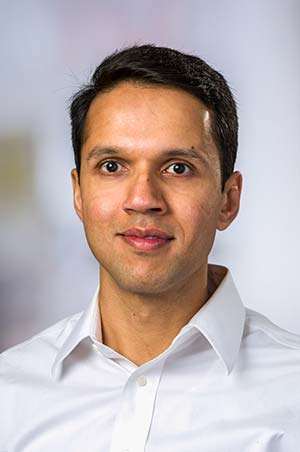Arvind (Rasi) Subramaniam, PhD
Associate Professor
Basic Sciences Division, Fred Hutch
Associate Professor, Herbold Computational Biology Program
Public Health Sciences Division, Fred Hutch
Member
Translational Data Science Integrated Research Center (TDS IRC), Fred Hutch
Dr. Arvind “Rasi” Subramaniam studies how cells produce proteins, one of biology’s most fundamental processes. The process can go awry in certain disease states, including cancer, and Dr. Subramaniam examines how certain alterations in protein synthesis may lead to disease. He uses both experimental and computational methods to better understand how cells build proteins, including how they cope when problems arise. Dr. Subramaniam’s quest to understand this fundamental process spans life forms from bacteria to mammalian cells. From this work, his lab has uncovered a quality control mechanism in cells that detects collisions between the molecular machines that produce proteins, called ribosomes, as they move along stretches of messenger RNA.
Other Appointments & Affiliations
Affiliate Assistant Professor, Biochemistry, University of WashingtonAffiliate Assistant Professor, Biochemistry
University of Washington
Affiliate Assistant Professor, Genome Sciences
University of Washington
Affiliate Assistant Professor, Microbiology
University of Washington
Education
Postdoctoral Fellow, Molecular and Cellular Biology, Harvard University
PhD, Physics, University of Chicago
BTech, Metallurgical and Materials Engineering, Indian Institute of Technology, Madras
Research Interests
How the rate of synthesis of a given protein encoded in the sequence of the corresponding messenger RNA
How the cell accurately detects problems with the protein synthesis machinery that occur, for example, upon nutrient starvation
The quantitative contribution of different nutrient-sensing pathways to the regulation of protein synthesis rate
From this work, his lab has uncovered a quality control mechanism in cells that detects collisions between ribosomes on messenger RNA molecules while producing proteins.
"A basic science perspective gives a concrete framework to think about the complexity around us. Without it, you can describe what you see but not understand it at a deeper level."
— Dr. Arvind "Rasi" Subramaniam
